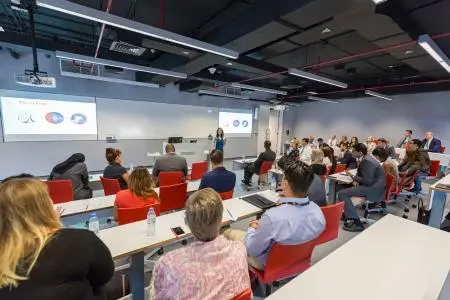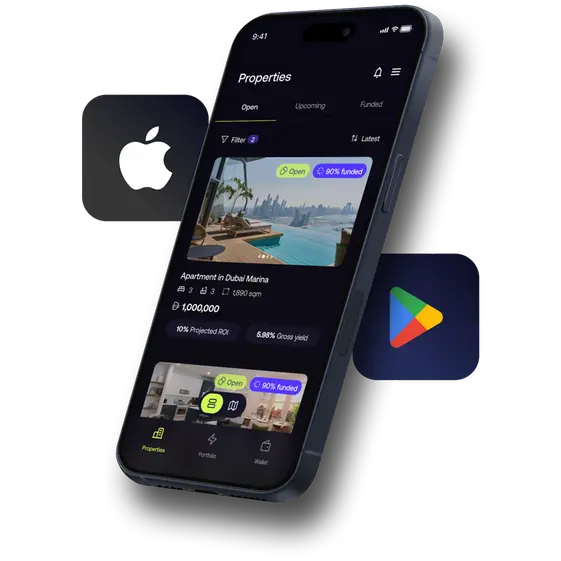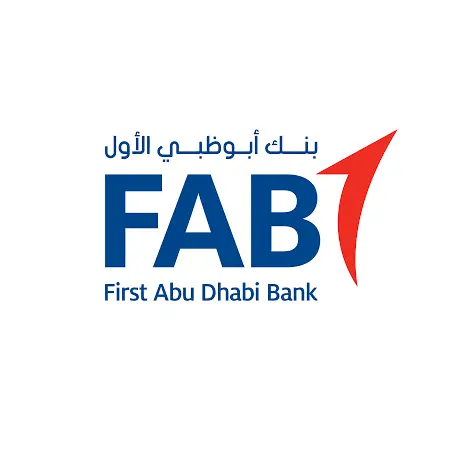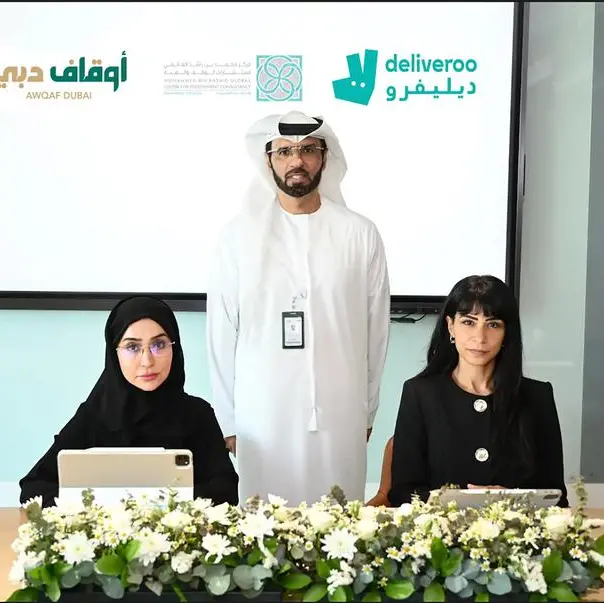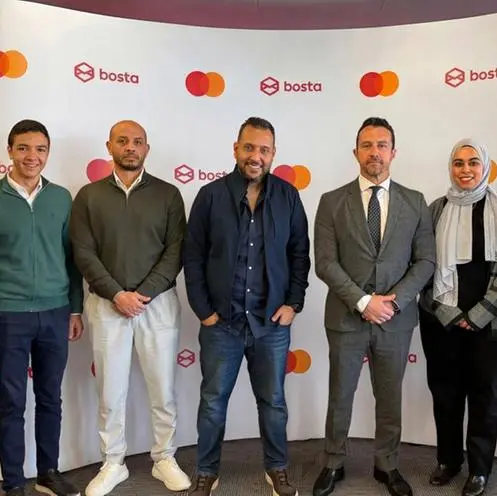PHOTO
Dubai, United Arab Emirates - Given the growth in reliance on virtual collaboration and the development of new technologies facilitating online engagement, working virtually is becoming increasingly common in many organizations. This is also reflected in the increasing use of virtual learning technologies which help companies to save on the cost of employee travel and accommodation for training at a physical location, and reduces the number of days required away from the office. Ashridge Executive Education, a leader in developing Middle East business executives, recently conducted research into the effectiveness of virtual learning to address the pertinent question in today’s digitalised world - whether business leaders can develop competencies, resilience and resourcefulness to face leadership challenges through online learning.
The research involved 37 executives who participated in an Ashridge program called ‘Leading on the Edge’. The program was delivered by the same three members of faculty utilizing three different learning environments- Face to Face (F2F), Blended (a combination of face to face and online learning) and Virtual experiential. The F2F two-day program was residential, the Blended two-day program was conducted virtually and one residentially, and the Virtual two-day program was fully virtual and participants were either at their own home or in their office.
The behavioral simulation which formed the basis of the three programs consisted of a simulated exercise where participants ran a company of the future, during which time they had to deal with critical incidents typical of leadership challenges, including dealing with complexity and effective decision making, leading rapid change and ambiguity, difficult conversations, balancing strategic and operational challenges, and board presentations. Everyone was asked to wear a Heart Rate Variance (HRV) monitor so that faculty could track their response when faced with stressful situations. Increased HRV is related to improved learning experience.
The research results were shared by Sona Sherratt, senior faculty member at Ashridge and one of the authors of the report, at a showcase event in the Hult campus in Dubai following roadshows in London and other European cities. The event in Dubai was attended by senior leaders from regional companies.
In summary, the results show that virtual learning is equivalent to face to face delivery when developing leaders, if designed and delivered effectively. For instance, when it comes to responding to ambiguous circumstances, 85% of F2F participants showed confidence, the percentage was 100% for those in the Blended program and 85% for those participating virtually. In tackling a difficult conversation, 85% of F2F participants showed confidence, while this was 80% for Blended and 100% for Virtual.
When faced with difficult situations, a higher HRV was recorded in participants of all the three types of learning experience, indicating a higher level of arousal, which translated into higher impact and residual learning outcomes. What was critical to the impact, however, was that the learning methodologies used involved opportunities for experience, for interaction, and for feedback.
According to Sona: “There is an increasing use of virtual technologies to deliver distance learning, virtual learning and eLearning in academia and among learning and development professionals. Learning methodologies employed in different environments involve opportunities for experience, for interaction, and for feedback. Adhering to the principles, virtual experiential learning holds enormous promise for a scalable, practical solution to developing leaders in our global, digital environment.”
-Ends-
About Ashridge Executive Education:
Established in 1959, Ashridge (www.ashridge.ae) is a leading business school for working professionals with an international reputation for leadership development. It is in the 1% of business schools globally accredited by AMBA, EQUIS and AACSB; these are the highly-regarded benchmarks of quality and standards in business education worldwide.
Each year it works with over 6,000 managers from 850 organizations in 60 countries by helping them to develop their leadership capabilities. Over 1 million leaders across the globe are connected into Virtual Ashridge, for their ongoing development.
Regionally, Ashridge has over 20 years’ experience in the Middle East, designing and delivering senior leadership assessment and development projects.
For more information, please contact Lisa George/ Wafa Yahya, Iris Public Relations, Dubai, UAE.TEL: +971 4 434 1207. E-mail: lisa@irispr.net/wafa@irispr.net. Website: www.irispr.net
© Press Release 2017
